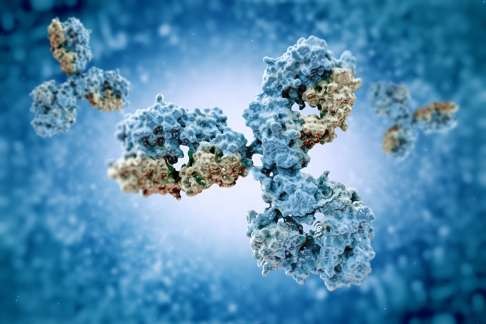
Playing music to babies improves their response to speech and tunes, study finds
Also in the news: obese women more than double the odds of their child being overweight by age two
Babies who have musical play sessions have improved processing of both music and new speech sounds, according to a study by University of Washington scientists. Music and language have strong rhythmic patterns. The timing of syllables helps listeners define one speech sound from another and understand what someone is saying. The ability to identify differences in speech sounds helps babies to learn to speak.
For the study, 39 nine-month-old babies attended 12 15-minute play sessions with their parents over the course of a month. With the 20 babies assigned to the music group, recordings of children’s music played while the babies and their parents tapped in time with the music. The other 19 babies formed a control group that attended music-free sessions.
Within a week after the sessions, the babies’ brain responses were measured. While being scanned, they listened to a series of music and speech sounds, played out in a rhythm that was occasionally disrupted. Babies in the music group had stronger responses than the non-musical group to
the disruptions in music and speech in the auditory and the prefrontal cortex, which is important for controlling attention and detecting patterns.

A woman who is obese before getting pregnant more than doubles the odds of her child being overweight by age two compared to women with normal pre-pregnancy weight, according to a new study published in Pediatric Obesity.
In addition, the study found excessive weight gain during pregnancy was linked with 23 per cent increased odds of a child being overweight at age two compared to women who had healthy weight gain during pregnancy, and that breastfeeding for at least six months was associated with a 24 per cent reduction for the odds of a child being overweight at age two regardless of a mother’s pre-pregnancy weight, gestational diabetes or excessive weight gain during pregnancy. The study included 15,710 women who delivered babies at Kaiser Permanente medical facilities in Southern California in 2011.
“Childhood obesity is linked with adult obesity and long-term negative health outcomes, which is why it is important to explore which factors may contribute to excessive weight during early childhood,” explains the study’s lead author, Anny H. Xiang, of the Kaiser Permanente Southern California Department of Research & Evaluation.
“Our study findings highlight the need for more public health efforts to reduce maternal obesity, appropriate gestational weight gain and to promote breastfeeding.”

Study finds no change in antibody levels associated with food allergy
Food allergies in children are on the rise, but a new study using 5,000 stored blood samples found no increase in the presence of food-specific immunoglobulin E (IgE) – a blood marker associated with food allergy – in children’s blood in the US between the 1980s and the 2000s.
The new data from Johns Hopkins University, published in the Journal of Allergy and Clinical Immunology, suggest the increases in prevalence of food allergies over the past several decades may be due to either an increase in the recognition and diagnosis of food allergy or to a changing relationship between the presence of IgE and food allergy symptoms.
The researchers analysed data from nearly 8,000 children ages 6 through 19 as part of the US National Health and Nutrition Examination Survey. Overall, the team found no increase in the number of children sensitised to peanuts, milk or eggs, while the number with antibodies to shrimp actually decreased. One possible explanation for the results, says senior study author Dr Corinne A. Keet, is that parents, patients and physicians are simply more aware of food allergies today than they were a few decades ago. “In the past, there may have been more people who just didn’t eat a food because it made them feel sick, but they didn’t necessarily call that an allergy,” Keet says. “Today, we may be much more likely to suspect allergy when a child has a rash or other symptoms after eating a certain food.”

